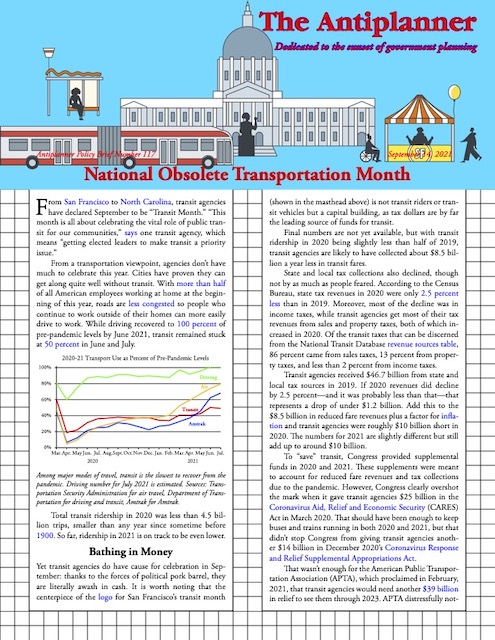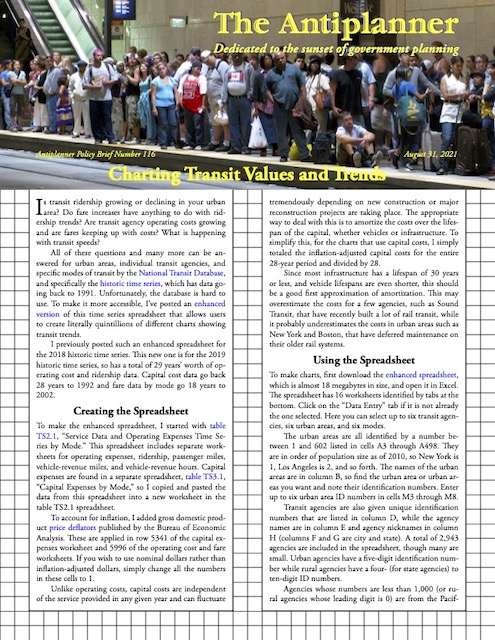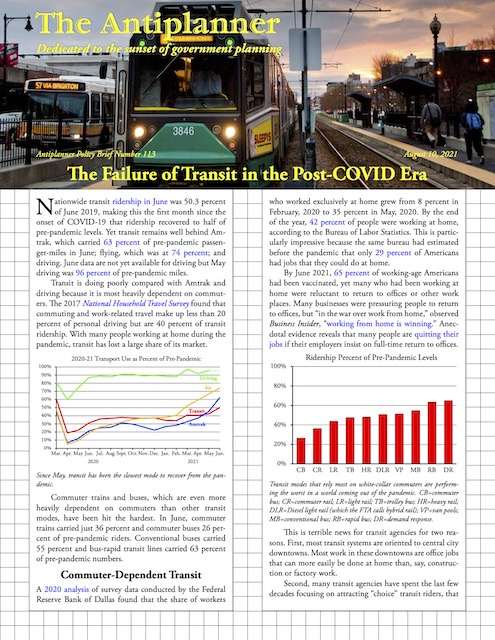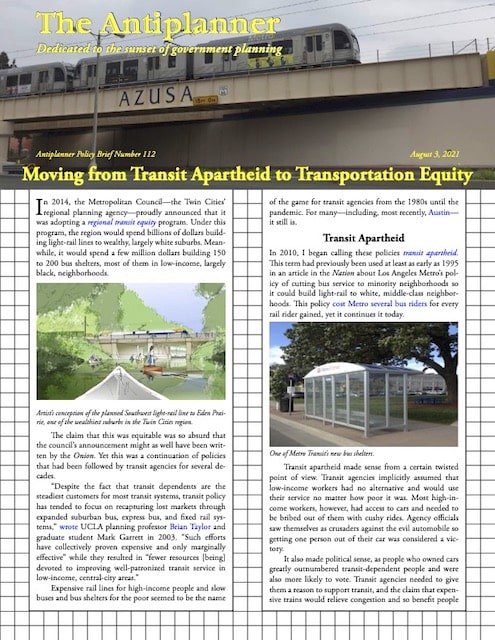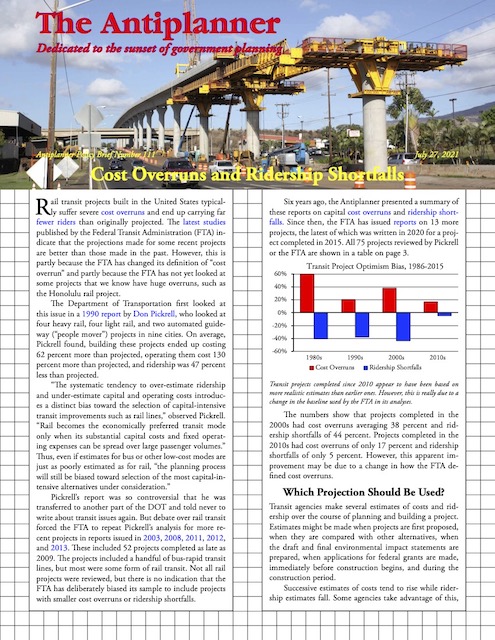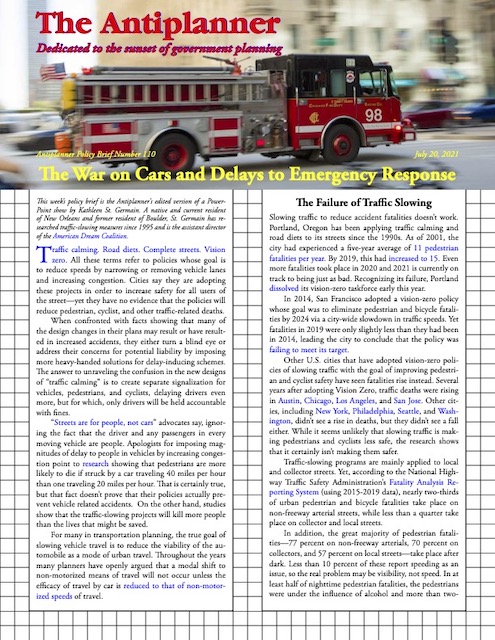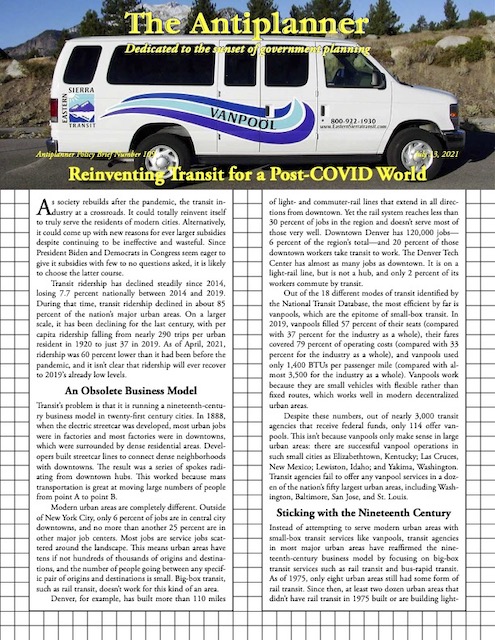The Federal Aid Highway Act of 1962 required urban areas of 50,000 or more people to have “a continuing, comprehensive transportation planning process carried out cooperatively by states and local communities.” The Federal Aid Highway Act of 1973 specified that this planning should be done by metropolitan planning organizations (MPOs) overseen by elected officials (such as city councilors or county commissioners) representing a majority of people in the urban area. These MPOs are often called “councils of governments” or “associations of governments.”
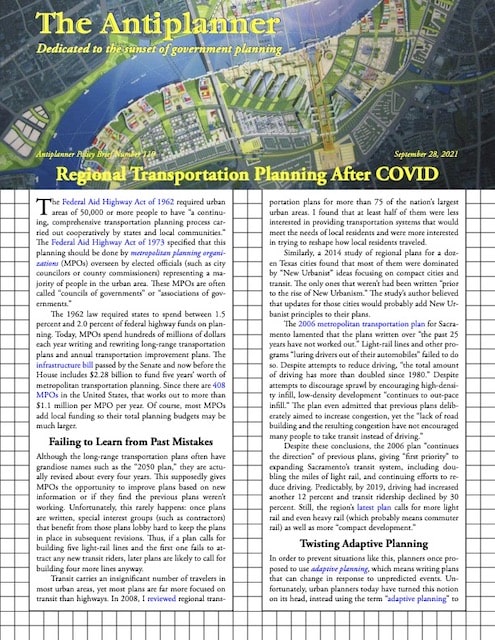 Click image to download a four-page PDF of this policy brief.
Click image to download a four-page PDF of this policy brief.
The 1962 law required states to spend between 1.5 percent and 2.0 percent of federal highway funds on planning. Today, MPOs spend hundreds of millions of dollars each year writing and rewriting long-range transportation plans and annual transportation improvement plans. The infrastructure bill passed by the Senate and now before the House includes $2.28 billion to fund five years’ worth of metropolitan transportation planning. Since there are 408 MPOs in the United States, that works out to more than $1.1 million per MPO per year. Of course, most MPOs add local funding so their total planning budgets may be much larger. Continue reading

